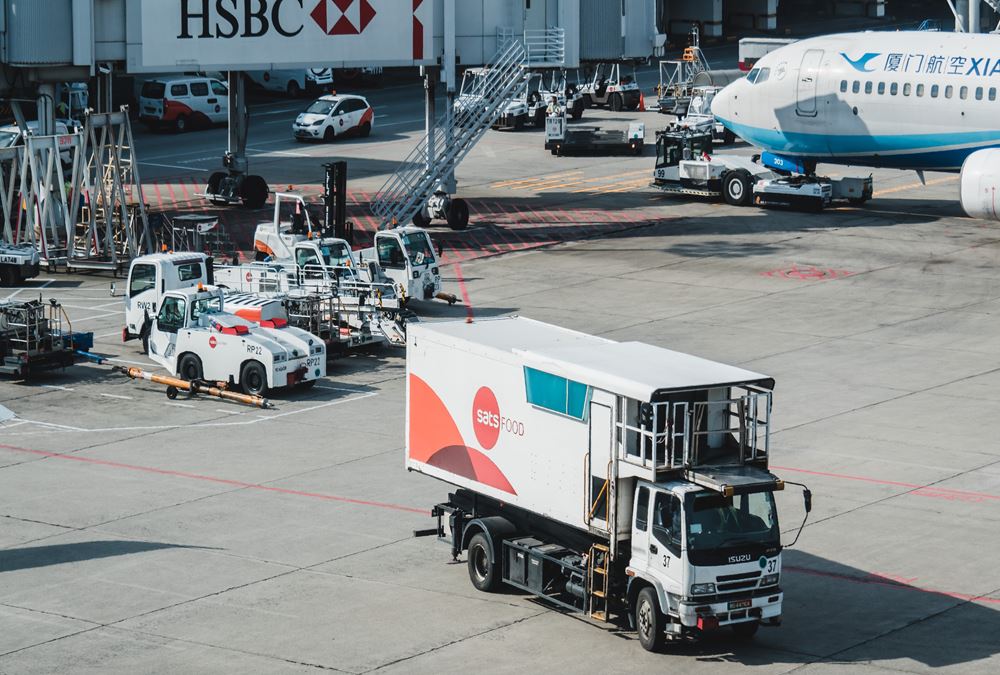- Home
- Business Processes
- Industry Knowledge
- Aerospace Industry
- Automotive Industry
- Banking Domain
- BFSI Industry
- Consumer/ FMCG Industry
- Chemicals Industry
- Engineering & Construction
- Energy Industry
- Education Domain
- Finance Domain
- Hospitality Domain
- Healthcare Industry
- Insurance Domain
- Retail Industry
- Travel and Tourism Domain
- Telecom Industry
- Leadership Skills
- eLearning
- Home
- Domain Knowledge
- Aerospace Industry
- Civil Aerospace Sector - Sector Profile
Civil Aerospace Sector - Sector Profile
In this article, we will discuss the four important sub-sectors of the Civil Aerospace Sector namely “Civil Aircraft Manufacturing”, “Commercial Avionics”, “MRO” and “Commercial Simulation & Training”.
Civil Aircraft Manufacturing:
The Global Commercial Aircraft Manufacturing industry consists of businesses that produce civil complete aircraft; aerospace engines, propulsion units, auxiliary equipment or parts; prototypes of aerospace products; aircraft conversion; and complete aircraft or propulsion systems overhaul and rebuilding. An aircraft manufacturer is a company or individual involved in the various aspects of designing, building, testing, selling, and maintaining aircraft, aircraft parts, missiles, rockets, or spacecraft. Leading companies like Boeing, United Technologies Corporation, and Lockheed Martin Corp. are among the most widely known aerospace manufacturers in the world.
The civil aircraft manufacturing subsector is responsible for producing aircraft engines and engine parts, general aircraft, large commercial aircraft (LCA), regional aircraft, and other parts and auxiliary equipment.
Commercial Avionics:
Commercial avionics refers to cockpit electronics and airborne equipment, although it doesn't include antennas, recorders, or other passenger-only cabin systems. Avionics is referred to denote the electronic systems that are utilized in aircraft, spacecraft as well as artificial satellites. The modern-day digital avionics/aircraft systems are intricate in their own ways and this makes commercial avionics a specialized industry. There are four main products manufactured in this subsector namely communications, navigation, surveillance, and avionics integration products.
Aircraft Maintenance, Repair & Overhaul Industry:
Companies in this industry provide support services, such as aircraft inspection and testing, ferrying aircraft between departure gates and taxiways, aircraft maintenance and repair, and aircraft and parts overhaul, to air transport operators. The main industry services are commonly referred to as maintenance, repair, and overhaul (MRO).
Commercial Simulation & Training:
Training people how to operate and maintain today’s sophisticated aircraft as well as on-board and ground support systems can be very complex and costly. To be effective, the training environment must accurately simulate the features and capabilities of the actual systems in a wide range of operating scenarios. Commercial modeling, visual simulation, flight simulation, and computer-based training are the key methods used by this subsector.
Suggested Reading and Resources
Related Links
You May Also Like
-
Military & Defense Aerospace Sector – Sector Profile
In this article, we will discuss the important sub-sectors of the Military & Defense Aerospace Sector namely military aircraft manufacturing and military avionics, maintenance, repair, and overhaul (MRO), missiles, C4ISR, and related services and modeling, simulation, and training.
-
Challenges in the Aerospace and Defense Industry
New market dynamics are dramatically changing the way A&D companies serve their customers, collaborate with partners, and take ideas and solutions to the market. Given below are several vitally important challenges that are currently confronting the aerospace and defense industry and strategies to mitigate them.
-
Civil Aerospace - Commercial Simulation and Training
Training people how to operate and maintain today’s sophisticated aircraft as well as on-board and ground support systems can be very complex and costly. To be effective, the training environment must accurately simulate the features and capabilities of the actual systems in a wide range of operating scenarios. Commercial modeling, visual simulation, flight simulation, and computer-based training are the key methods used by this subsector.
-
Application of Aviation in Military – A Short History
Aerospace is an industry that has a history of about a century in the defense space. This article discusses how the historic flight of the Wright brothers in 1908 gave birth to the aerospace defense industry that today employs 850K people in the US only.
-
Civil Aerospace: Commercial Avionics Industry
Commercial avionics refers to cockpit electronics and airborne equipment, although it doesn't include antennas, recorders, or other passenger-only cabin systems. Avionics is referred to denote the electronic systems that are utilized in aircraft.
-
Civil Aerospace: Maintenance, Repair & Overhaul (MRO)
This subsector under the civil aerospace industry includes the maintenance, repair, and overhaul (Known as MRO) of civil aircraft and aircraft components. This includes line and heavy maintenance of civil aircraft, as well as repair and overhaul of all parts of an aircraft, including engines, electronic components, and avionics, instruments, and aircraft structures.
-
Aerospace Industry: The Business Model
In this article, we will discuss the value chain of the Aerospace Industry and will define the generic business model to understand the key process areas in the aerospace industry. This will provide you with a basic understanding of key activities in the industry.
-
Civil Aerospace Sector - Sector Profile
In this article, we will discuss the four important sub-sectors of the Civil Aerospace Sector namely “Civil Aircraft Manufacturing”, “Commercial Avionics”, “MRO” and “Commercial Simulation & Training”.
-
An overview of the Aerospace Industry. A brief account of how modern aerospace began way back with Sir George Cayley in 1799 and the success story of the Wright Brothers to today's massive international airspace developments.
-
Aerospace Industry - The Competitive Landscape
This article provides an overview of the competitive landscape of the aerospace industry. Read how the compaction is shaped up across the US and the globe, followed by a detailed discussion of the top 5 players in the sector in terms of revenue.
Explore Our Free Training Articles or
Sign Up to Start With Our eLearning Courses

About Us
Learning
© 2023 TechnoFunc, All Rights Reserved










